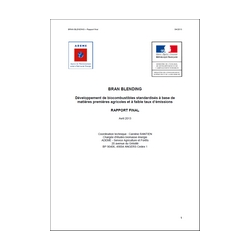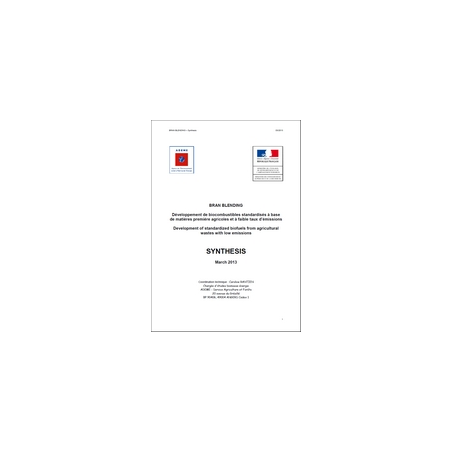Bran Blending : développement de biocombustibles standardisés à base de matières premières agricoles et à faible taux d'émission
Etude/Recherche
Mis en ligne le : 03/07/2023


Documents associés
Etude/Recherche
Mis en ligne le : 03/07/2023
